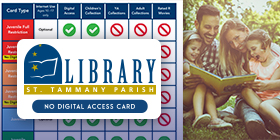This year marks the 25th anniversary of the first celebration, opens a new window of April as National Poetry Month.
Quite a bit of debate still exists over which kinds of poetry are proper forms of literature. If the critics have nothing else to talk about, they can always revisit the same old complaint about new methods and new technologies destroying the art form. Some critics have gone so far to say these days "artless poetry sells." (Watts, Rebecca. “The Cult of the Noble Amateur.” PN Review, vol. 44, no. 3, 2018, pp. 13–17. Partial access to this article is available here, opens a new window.) In that article, the author bemoans the way that people on social media produce terrible poetry. In the case of poetry, critics tend to insist that poetry is best when it remains in obscurity, recognized only by other members of the literary elite.
Throughout the centuries, many forms of art (music, painting, sculpture, dance, theater, etc.) have endured this sort of criticism. Some critics assume that if something is popular, it must be awful, because the average person is too uneducated or uncultured to tell the difference between true art and a hole in the wall. On the other end of the spectrum are people who share the opinion, "I don't know much about art, but I know what I like." (You may be familiar with this quote if you’re a Monty Python fan, but it was originally said by humorist Gelett Burgess, opens a new window).
We will find a more balanced explanation of the state of poetry today (and a far less snobbish attitude regarding social media) in a topic overview article we found in one of St. Tammany Parish Library's databases, Explora by EBSCO:
Poetry in the twenty-first century has been eclipsed by other literary forms. Some scholars go so far as to predict a future when poetry will be written by machines to be read by machines. At the same time, small presses that publish poetry are numerous, open-mike nights (opportunities to read a few poems for free or for a small cover charge) and poetry slams (competitive poetry readings) remain popular, and poets connect with their audience through social media. (Poetry. Rholetter, Wylene, MEd. Salem Press Encyclopedia of Literature, 2020. EBSCOhost).
We could continue a lengthy discussion about what is truly art, or which poetry is better for you to read, but we'll spare you that because you probably already know what you like. Instead we offer this list of autobiographies and memoirs written by poets, available from St. Tammany Parish Library.



Add a comment to: Poets: In Their Own Words